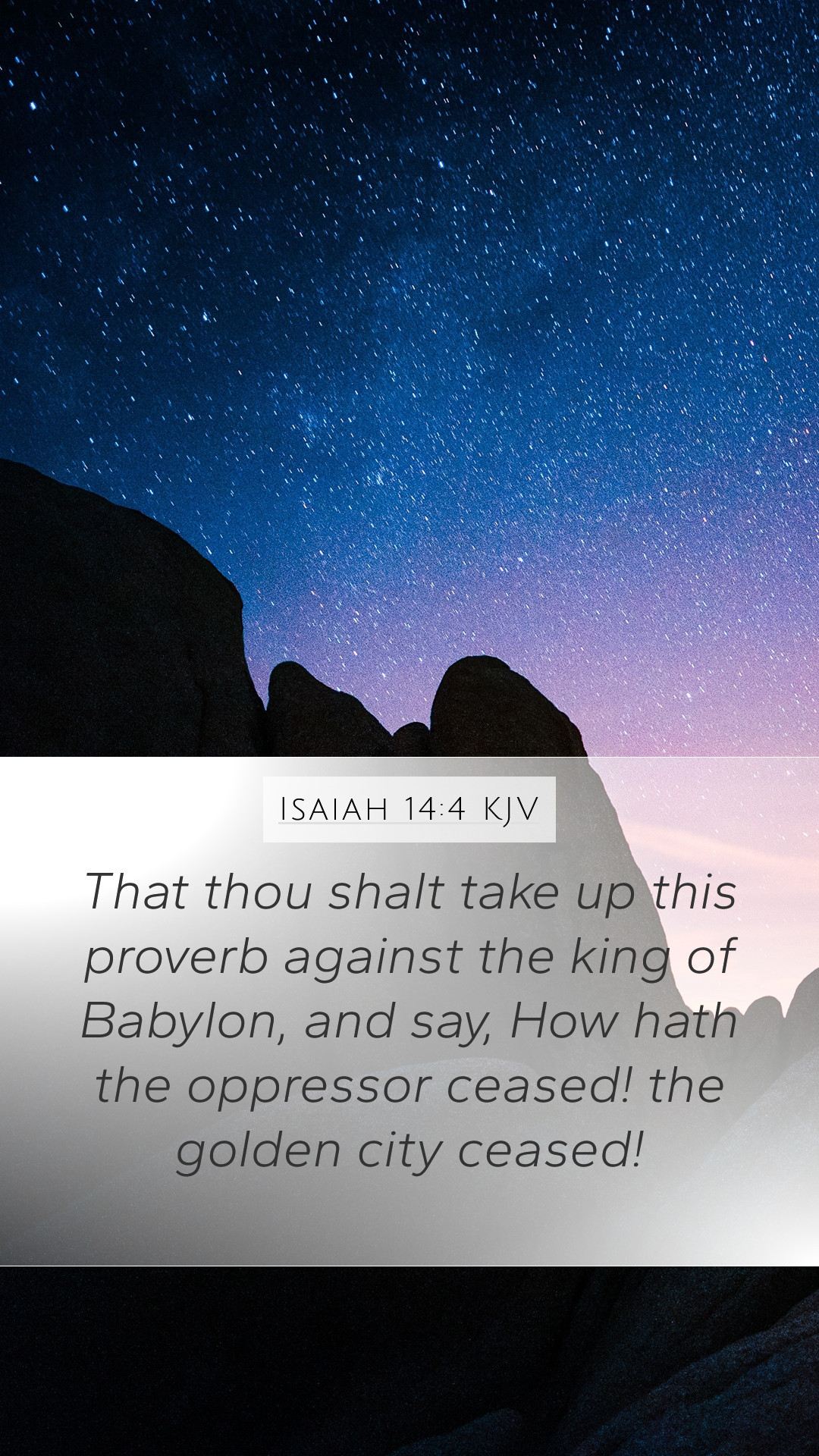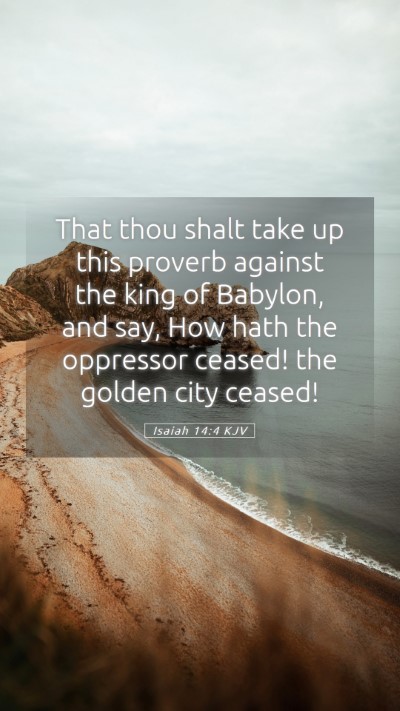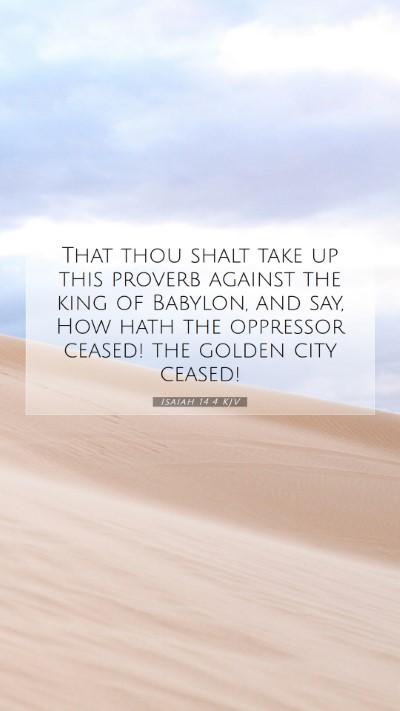Understanding Isaiah 14:4
Isaiah 14:4 states: "That you will take up this proverb against the king of Babylon, and say: 'How the oppressor has ceased, the golden city ceased!'" This verse is part of a passage where the prophet Isaiah addresses the fall of Babylon and the eventual demise of its oppressive ruler. To grasp the deeper meanings, let us explore interpretations from various public domain commentaries.
Bible Verse Meanings
The verse serves as a declaration of hope and the anticipation of justice against tyranny. Isaiah uses a mocking tone to highlight the Babylonian king's downfall, illustrating a shift from dominance to defeat. This resonates with the theme of divine retribution evident throughout scripture.
Insights from Commentaries
-
Matthew Henry's Commentary:
Henry emphasizes the relief felt by the oppressed nations upon hearing this prophecy. The phrase "how the oppressor has ceased" suggests a sudden end to the tyranny that Babylon embodied. This serves to remind readers of God's sovereignty over earthly powers and His ultimate plan for justice.
-
Albert Barnes' Notes:
Barnes points out that the "golden city" represents the wealth and pride of Babylon. His commentary indicates that Babylon's fall is not just a political event but also a moral and spiritual one. The verse reflects broader themes of pride and the inevitable judgment that awaits those who elevate themselves against God.
-
Adam Clarke's Commentary:
Clarke provides historical context, noting that Babylon was known for its grandeur. He interprets the "proverb" as a form of lamentation, a common literary device used in prophetic literature to convey the downfall of oppressors. Clarke emphasizes that such prophecies were meant to bring comfort to the afflicted.
Scripture Analysis
This verse serves a dual purpose: it announces the fall of the Babylonian empire while simultaneously encouraging God's people. The Lord’s reach extends to every nation, and this prophecy is a testament to His control over human history.
Subthemes in Isaiah 14:4
- Hope in Despair: The prophecy instills hope in those burdened by oppression.
- Divine Justice: God's judgment on Babylon illustrates the principle of divine justice, serving as a warning to nations that turn away from Him.
- Reversal of Fortunes: The concept of reversed roles — the oppressor becoming the oppressed — is central to the prophetic message.
Applying Bible Verses to Daily Life
Believers can find encouragement in the knowledge that, despite present hardships, God is aware and actively working against injustice. This verse calls for reflection on how individuals interact with authority and the importance of maintaining humility.
Related Cross References
- Jeremiah 51:7: "Babylon was a golden cup in the Lord’s hand, making all the earth drunken..."
- Revelation 18:2: "And he cried out with a mighty voice, saying, 'Fallen! Fallen is Babylon the great!'"
- Isaiah 13:19: "And Babylon, the glory of kingdoms, the splendor and pomp of the Chaldeans, will be like Sodom and Gomorrah when God overthrew them."
Conclusion
The verse Isaiah 14:4 serves as a potent reminder of the transient nature of power and the certainty of divine justice. Through the insights gained from this passage, believers are equipped to engage in thoughtful Bible study, underpinning the timeless message that evil will not prevail in the end.


